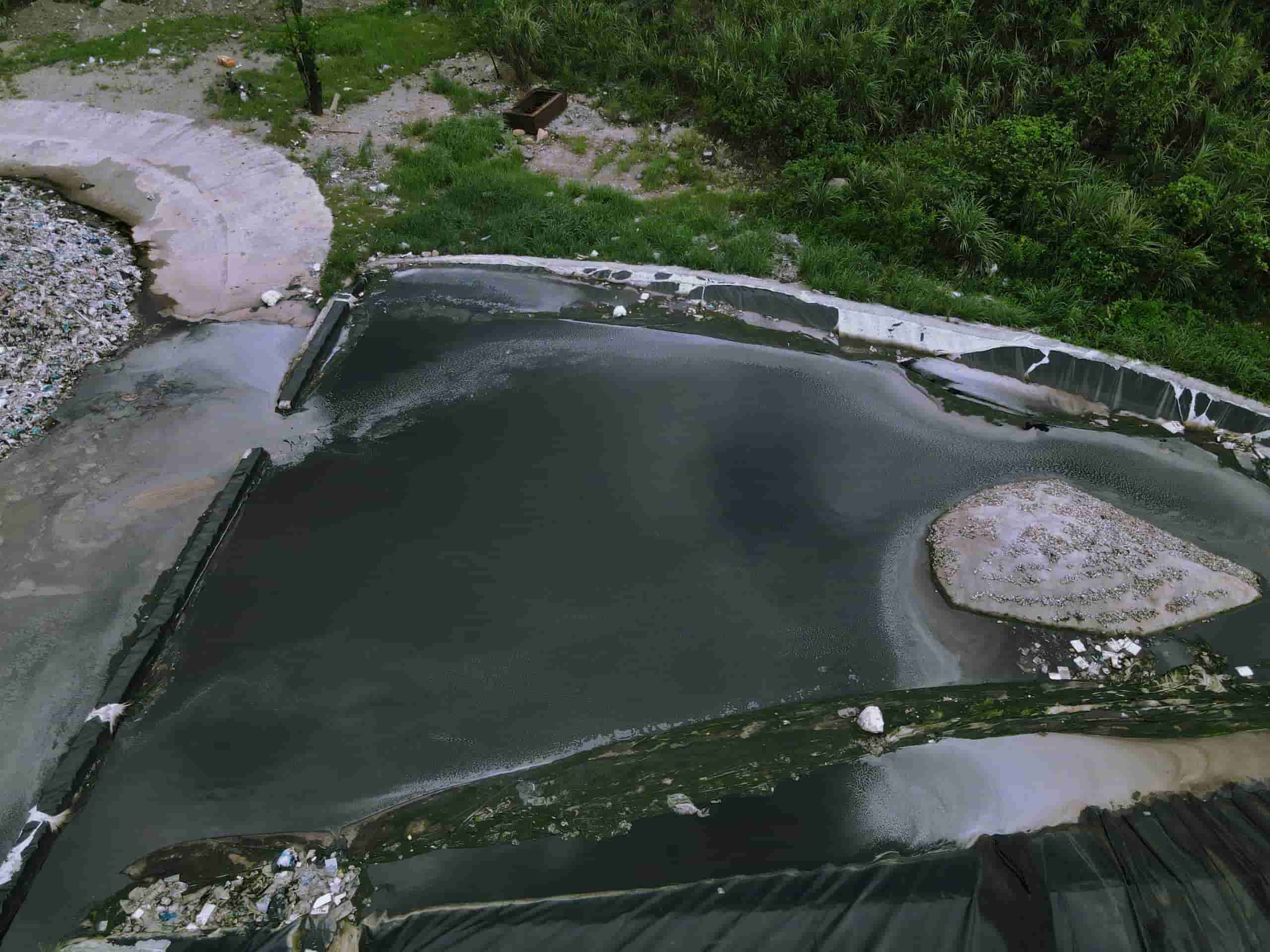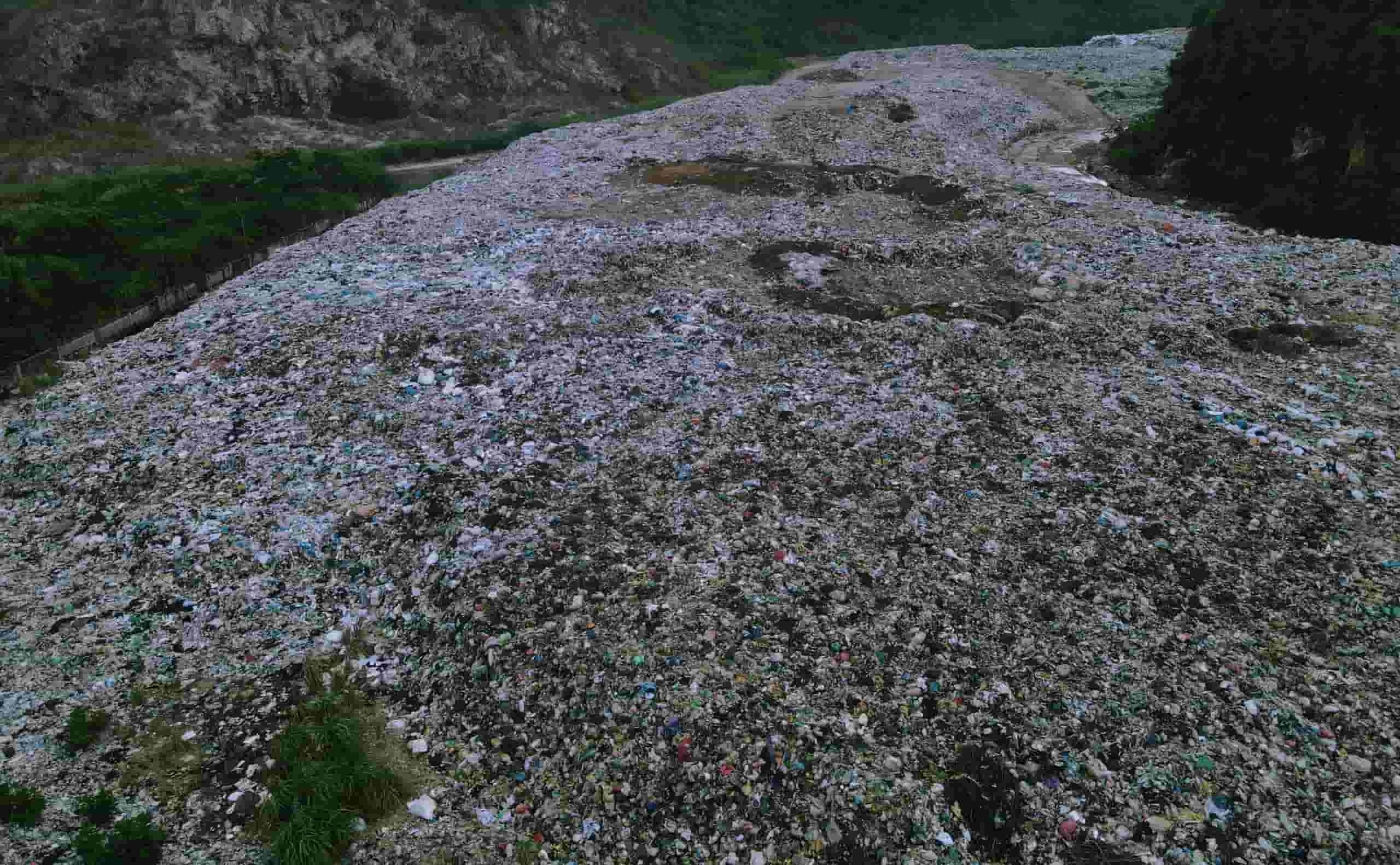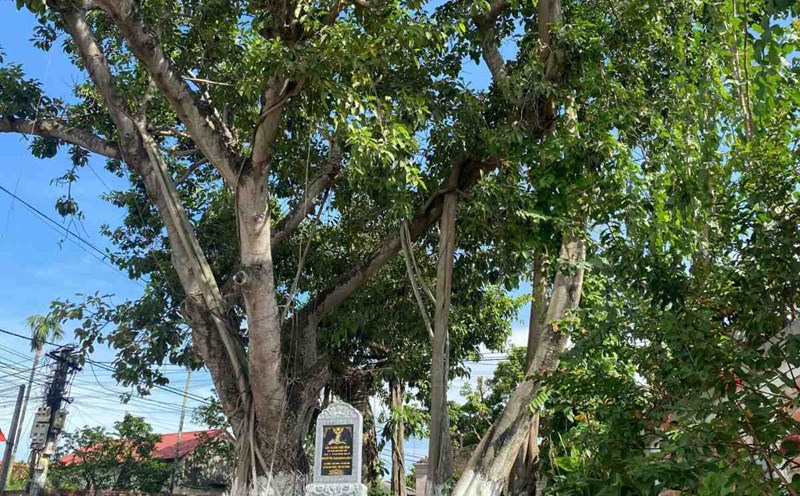According to the investigation of Lao Dong Newspaper, there are currently 63 landfills and 108 incinerators of domestic waste in Ninh Binh province managed by the People's Committees of communes and wards.
Currently, many landfills are overloaded and do not ensure environmental hygiene, some incinerators have degraded and are not operating effectively, leading to the risk of environmental pollution.
At the Quyen Khoi valley landfill (Trung Son ward, Ninh Binh province), the amount of waste remaining here has far exceeded the designed capacity. The average amount of waste generated per day is about 430 tons, while the plant's processing capacity is only 200 tons/day and night.

Mr. La Phu Dung - Director of Ninh Binh solid waste treatment plant - said that the plant is operating under an autonomous mechanism but lacks financial resources. Meanwhile, the amount of waste has increased rapidly, while the unit price for treatment is only 90.200 VND/ton, too low compared to the actual treatment cost.
"Each year, the plant processes an average of 125,000 tons of waste, of which 113,000 tons are buried with hygiene, only 12,000 tons are processed under the form of microbiological fertilizer production. With a unit price of VND80,200/ton, the current revenue is not enough to cover expenses. Each year, the factory has to compensate for losses of more than 2.2 billion VND" - Mr. Dung said.
Similarly, in the old Ha Nam province, the amount of waste generated by September 2025 was nearly 94,000 tons, but there were still more than 12,000 tons left in 29 communes and wards that had not been treated.
Many temporary garbage collection points in Le Ho ward, Nam Xang commune, Thanh Lam... have become "open-air landfills" causing environmental pollution. The main reason is the rapid increase in the amount of waste, while the collection, transportation and treatment work is not synchronous, the unit price for cleaning services is still kept at the old level, not enough to pay for actual payments.
Mr. Le Hung Thang - Deputy Director of the Department of Agriculture and Environment of Ninh Binh province - said that currently, the collection, transportation and treatment of household waste in the province still has some difficulties and problems.
The volume of waste is increasing, putting pressure on the local waste management and treatment system. In addition, the classification, collection and transportation of waste and waste is not synchronous, many places and localities still implement forms and are not effective.
Meanwhile, waste treatment lines using organic resin production technology do not reach the designed capacity because the waste has not been classified at source.
Many landfills and incinerators are overloaded, and incinerators are degraded. Some incinerators do not have an emission treatment system that meets requirements. Small-scale landfills do not have water seepage, do not have wastewater treatment systems, leading to unsupported treatment of the environment and waste of resources...

Since the merger of provinces, the Department has issued many documents urging and guiding localities to strengthen the collection, transportation and treatment of domestic solid waste in the area; at the same time, signed 4 appendices to the collection, transportation and treatment contracts for domestic waste for service providers.
"Currently, the Department has drafted draft laws and is seeking opinions from relevant units to complete and submit to the Provincial People's Committee to issue regulations on waste management, collection and treatment in the province. At the same time, urgently draft and implement processes and procedures to submit to the Provincial People's Committee to issue prices for waste collection, transportation and treatment services" - Mr. Thang said.










